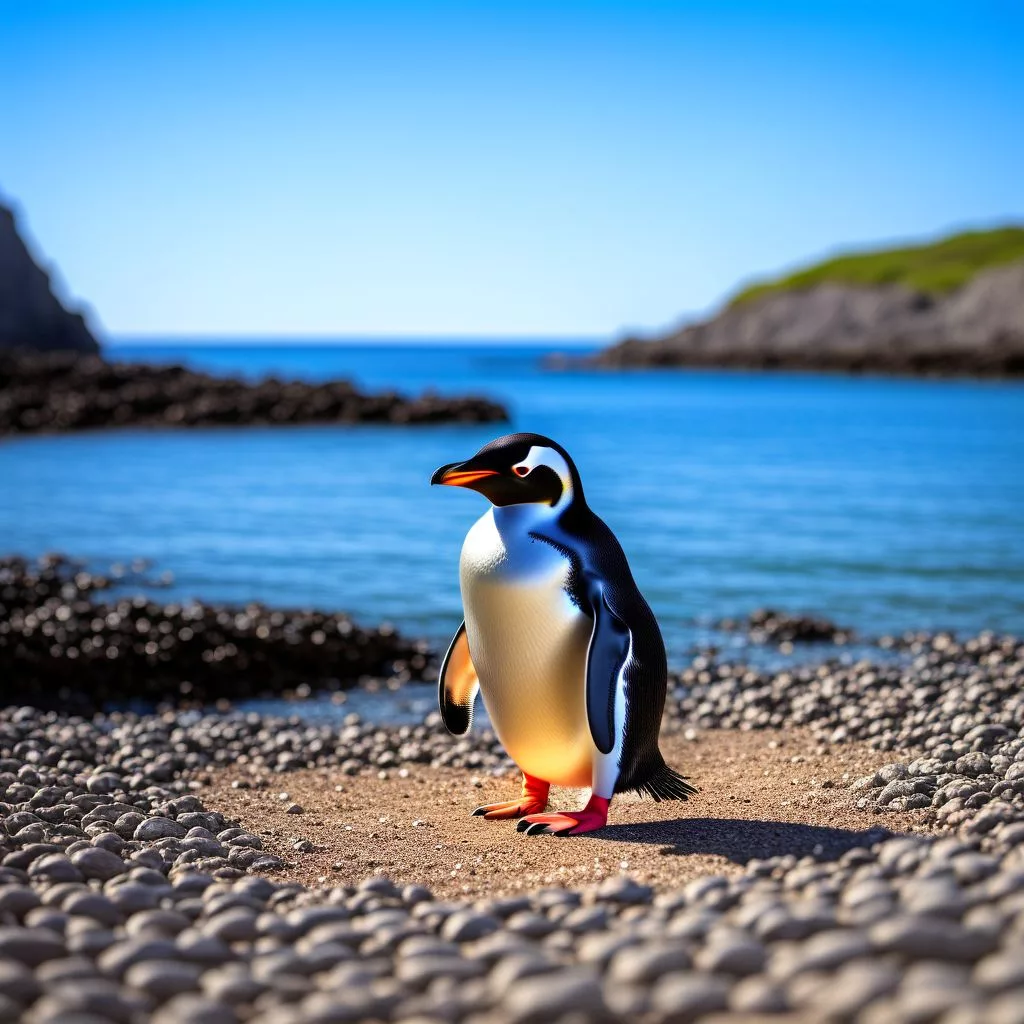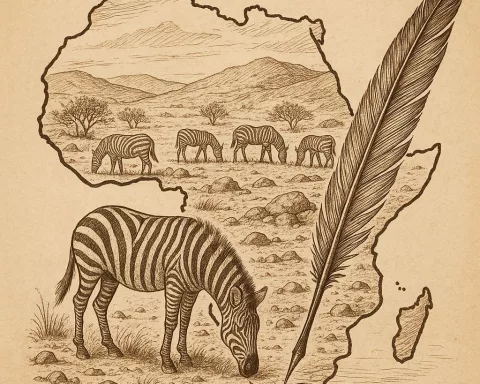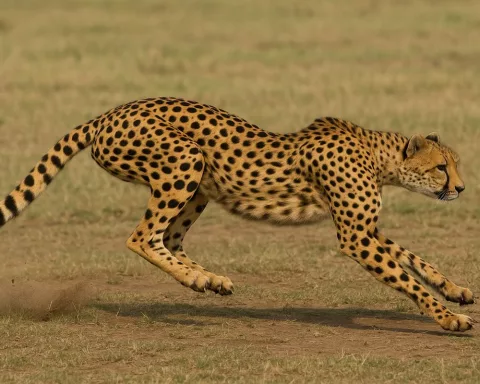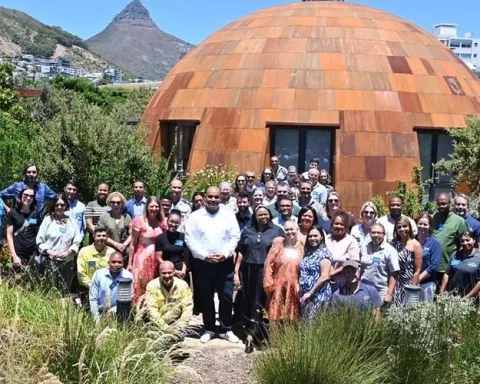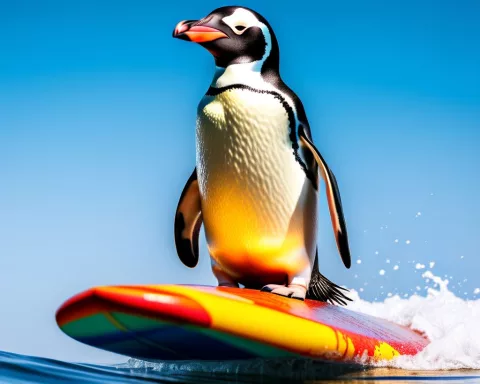In South Africa, a new agreement aims to save the African Penguin, the only penguin species on the continent, from extinction. This plan involves the government, conservation groups, and the fishing industry working together to stop overfishing near the penguins’ breeding areas, giving them a better chance to find food. With their population down by 97%, these charming birds now have fewer than 11,000 breeding pairs left. Local communities are also getting involved, helping to protect these beloved creatures while supporting tourism. Together, everyone hopes to see the African Penguin thrive once more in its natural home.
What is being done to save the African Penguin?
Efforts to save the African Penguin include a groundbreaking agreement among governmental bodies, conservation groups, and the fishing industry to reduce overfishing near breeding colonies. Key actions involve:
- Expanding no-take zones for better food access.
- Engaging local communities in conservation.
- Ongoing monitoring and adaptive management strategies.
The Crisis Facing the African Penguin
In the heart of South Africa’s Western Cape, a coalition of governmental bodies, conservation groups, and the pelagic fishing industry has reached a groundbreaking agreement to safeguard Africa’s only penguin species—the African Penguin. This pact, a testament to the power of collective action, aims to reduce overfishing near critical breeding colonies, ensuring these beleaguered birds have a stable food supply.
Once plentiful along the southern African coastline, the African Penguin now teeters on the brink of extinction. Classified as critically endangered after a staggering 97% decline in their population, these birds could disappear by 2035 without significant intervention. Scientists and environmental advocates have long pinpointed competition with commercial fisheries—specifically targeting sardines and anchovies, which are the penguins’ primary food sources—as a severe threat. Existing no-take zones, where fishing is banned, cover less than half of the penguins’ essential feeding areas. This new agreement promises to expand these protections around key breeding sites.
Major breeding colonies at Stony Point Nature Reserve, Dyer Island, and Dassen Island—overseen by CapeNature—stand to benefit greatly from this initiative. These sites are vital for the survival of the remaining 10,000 breeding pairs in South Africa. Anton Bredell, Western Cape Minister of Environmental Affairs, hailed the agreement as a landmark achievement. “This is a step in the right direction,” Bredell remarked, emphasizing the collaborative spirit of all involved parties. He also noted, “The African Penguin remains a firm favorite among our many visitors to the Western Cape and is a key contributor to our tourism offering and the many local jobs that it supports.”
Conservation Efforts and Challenges
Conservation groups such as BirdLife South Africa and the Southern African Foundation for the Conservation of Coastal Birds (SANCCOB) have consistently called on the government to impose stricter fishing regulations. While the new agreement marks significant progress, it is just one piece of a larger puzzle. CapeNature has pointed out that “significant management challenges” continue to exist beyond food shortages, necessitating ongoing vigilance and adaptive strategies.
The plight of the African Penguin reflects broader ecological challenges. Historically, penguins thrived in the nutrient-rich waters of the Benguela Current, which was abundant with marine life. However, overfishing, climate change, and habitat destruction have drastically altered this once fertile environment. The penguins now face a precarious existence, with fewer than 11,000 breeding pairs left in the wild.
Efforts to save the African Penguin are deeply rooted in South Africa’s conservation history. The establishment of marine protected areas (MPAs) dates back to the early 20th century when scientists and naturalists began advocating for the preservation of marine biodiversity. Over the decades, various MPAs have been designated, but the challenges have evolved. Modern conservation demands a multifaceted approach, integrating scientific research, community engagement, and stringent policy enforcement.
Community Involvement and Economic Impact
One of the remarkable aspects of this recent agreement is the role of community involvement. Local communities, whose livelihoods often depend on both fishing and tourism, have become crucial allies in conservation efforts. By participating in monitoring programs and advocating for sustainable practices, these communities help bridge the gap between ecological and economic interests.
The African Penguin’s charm extends beyond its ecological significance. These birds, with their distinctive black and white plumage and endearing waddle, have captured the public’s imagination. They have become iconic symbols of the region, drawing tourists from around the world. This popularity underscores the economic dimension of conservation—protecting these birds supports the tourism industry, which in turn sustains local economies.
Art and literature have also played a role in raising awareness about the African Penguin. From children’s books to documentaries, the penguins’ story has been told and retold, each time inspiring a new generation to care about their fate. Artistic movements, such as environmental art, have leveraged the penguins’ plight to highlight broader issues of biodiversity loss and climate change.
The Road Ahead
As we reflect on the African Penguin’s struggle for survival, it is impossible not to draw parallels with other species facing similar threats. The challenges of overfishing, habitat destruction, and climate change are not unique to this species. They are part of a global pattern that demands urgent attention and coordinated action. The Western Cape’s recent agreement offers a hopeful example of what can be achieved when diverse stakeholders—government, industry, conservation groups, and local communities—come together with a shared purpose.
This agreement, pending final legal approval, promises to extend much-needed protections around major breeding colonies. While it represents a significant step forward, the path to recovery for the African Penguin is long and fraught with challenges. Continuous collaboration, adaptive management, and sustained public interest will be essential to navigating this path successfully.
The story of the African Penguin is a poignant reminder of the complex interplay between human activity and wildlife conservation. It calls us to consider the broader implications of our actions and to recognize the intrinsic value of all species. The penguins’ survival hinges not only on legal protections and scientific interventions but also on our collective willingness to value and preserve the natural world.
In the spirit of this new agreement, let us hope that the African Penguin can once again thrive in the waters of the Western Cape, a symbol of resilience and the enduring power of conservation. The journey ahead is uncertain, but with continued dedication and support, there remains a glimmer of hope for these remarkable birds.
“`markdown
What is the current population status of the African Penguin?
The African Penguin is classified as critically endangered, with their population having declined by an alarming 97%. Currently, there are fewer than 11,000 breeding pairs left in the wild, making immediate conservation efforts crucial for their survival.
What measures are being implemented to protect the African Penguin?
A new agreement has been established involving the government, conservation groups, and the fishing industry to reduce overfishing near the penguins’ breeding areas. Key measures include expanding no-take zones to enhance food availability, engaging local communities in conservation efforts, and implementing ongoing monitoring and adaptive management strategies.
Why is overfishing a significant threat to the African Penguin?
Overfishing poses a severe threat to the African Penguin as it directly depletes their primary food sources, such as sardines and anchovies. With existing no-take zones covering less than half of the penguins’ essential feeding areas, competition with commercial fisheries has become a critical challenge impacting their survival.
How are local communities involved in conservation efforts for the African Penguin?
Local communities play a vital role in the conservation of the African Penguin by participating in monitoring programs and advocating for sustainable fishing practices. Their involvement helps to align ecological goals with economic interests, as many local livelihoods are tied to both fishing and tourism.
What is the economic impact of protecting the African Penguin?
The conservation of the African Penguin not only benefits the ecosystem but also supports the tourism industry, which is crucial for local economies. The penguins have become iconic symbols of the region, attracting tourists and creating jobs, thereby highlighting the economic dimension of wildlife conservation.
What challenges lie ahead for the recovery of the African Penguin?
While the new agreement represents a significant step forward, challenges remain. Ongoing issues such as habitat destruction, climate change, and the need for stringent policy enforcement must be addressed. Continuous collaboration, adaptive management, and public interest will be vital in navigating the long road to recovery for the African Penguin.
“`

